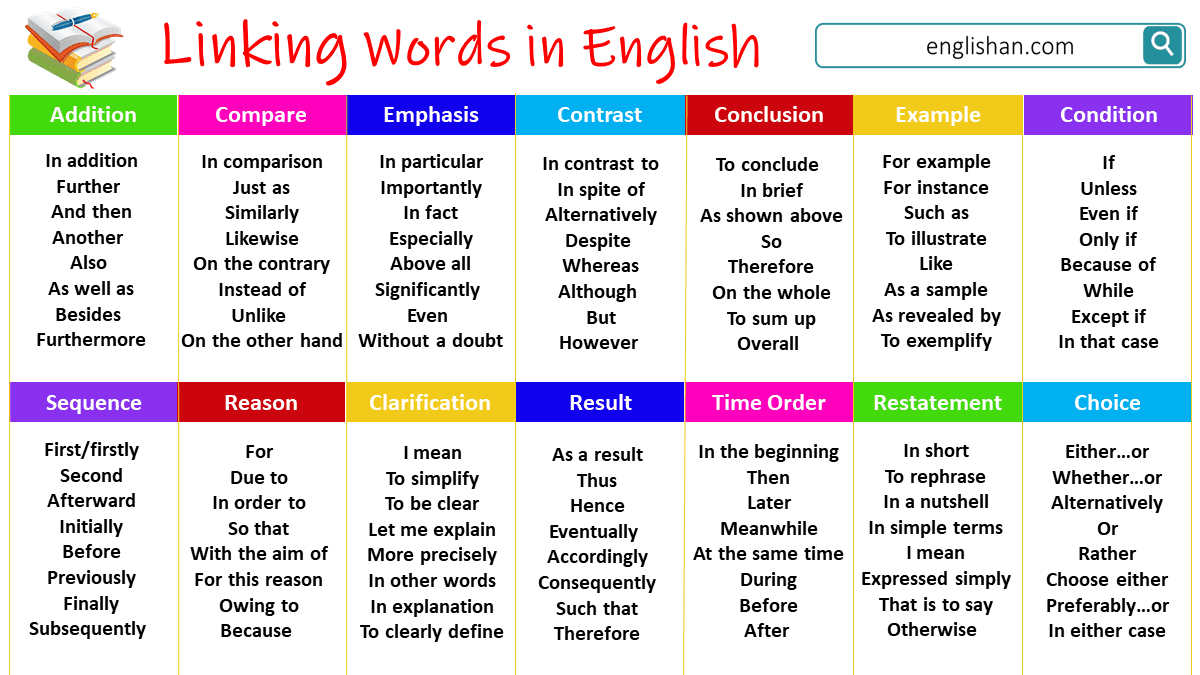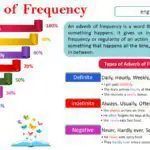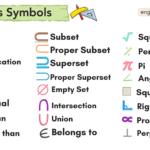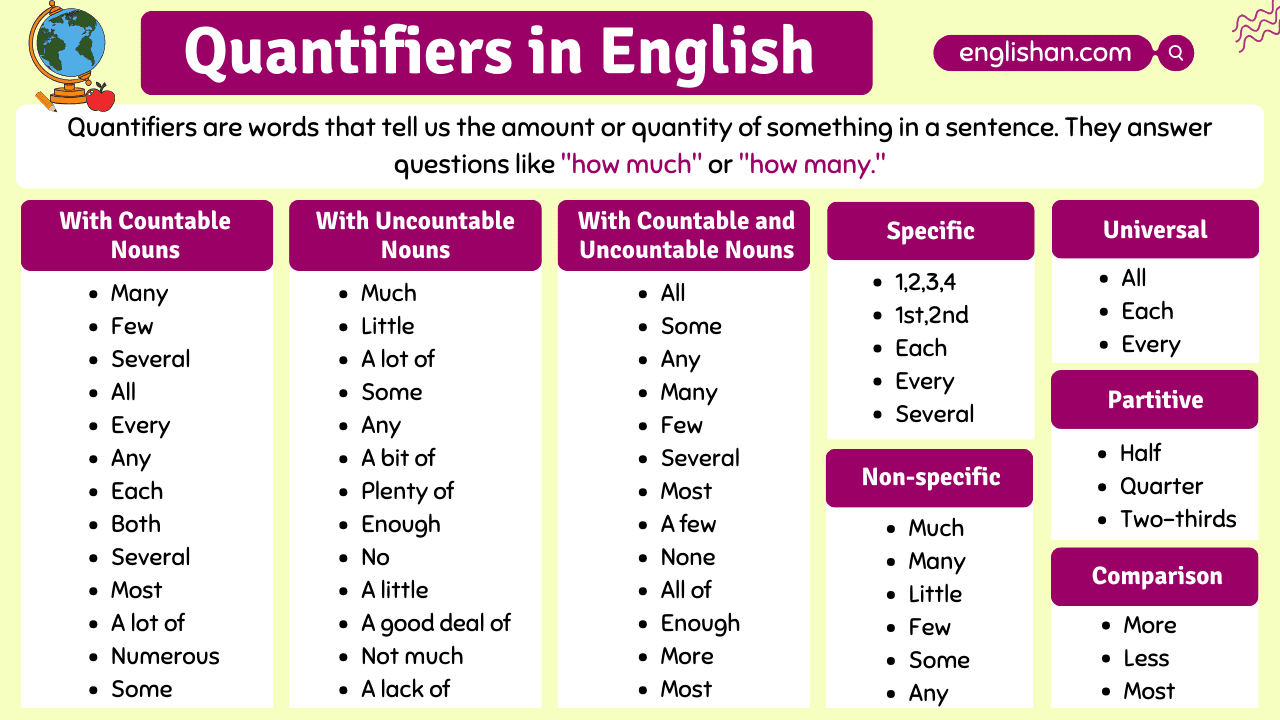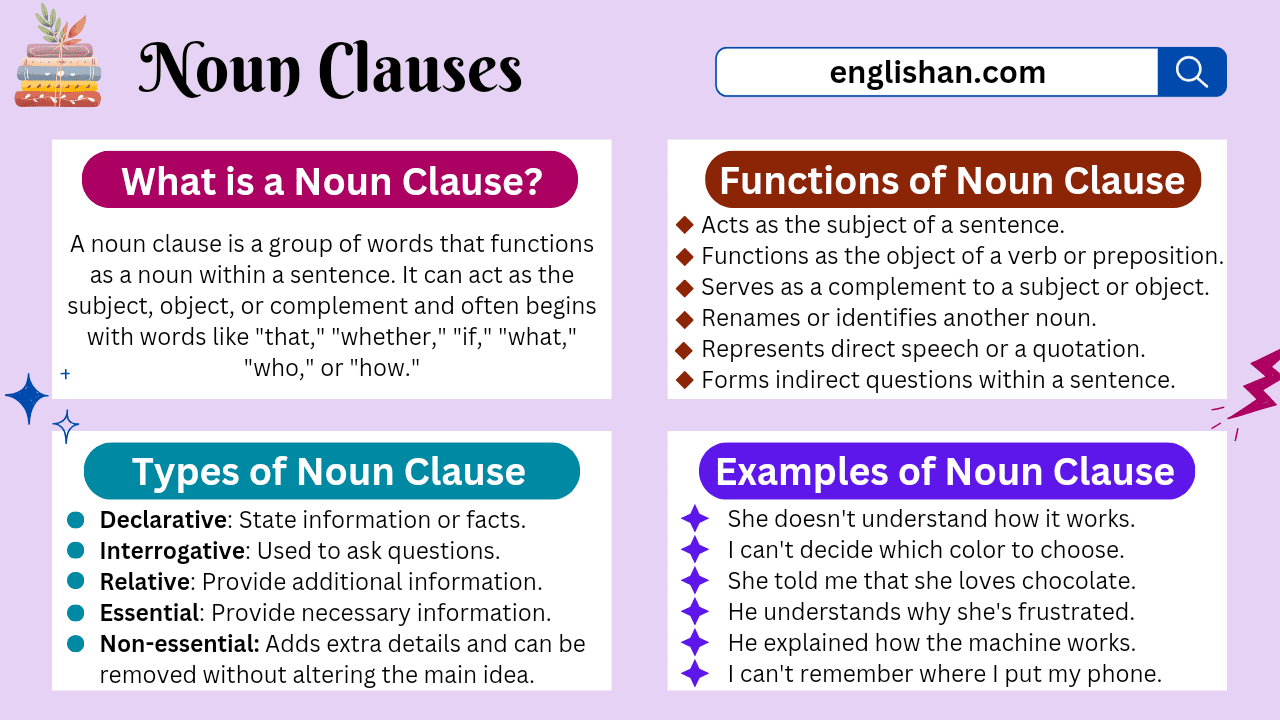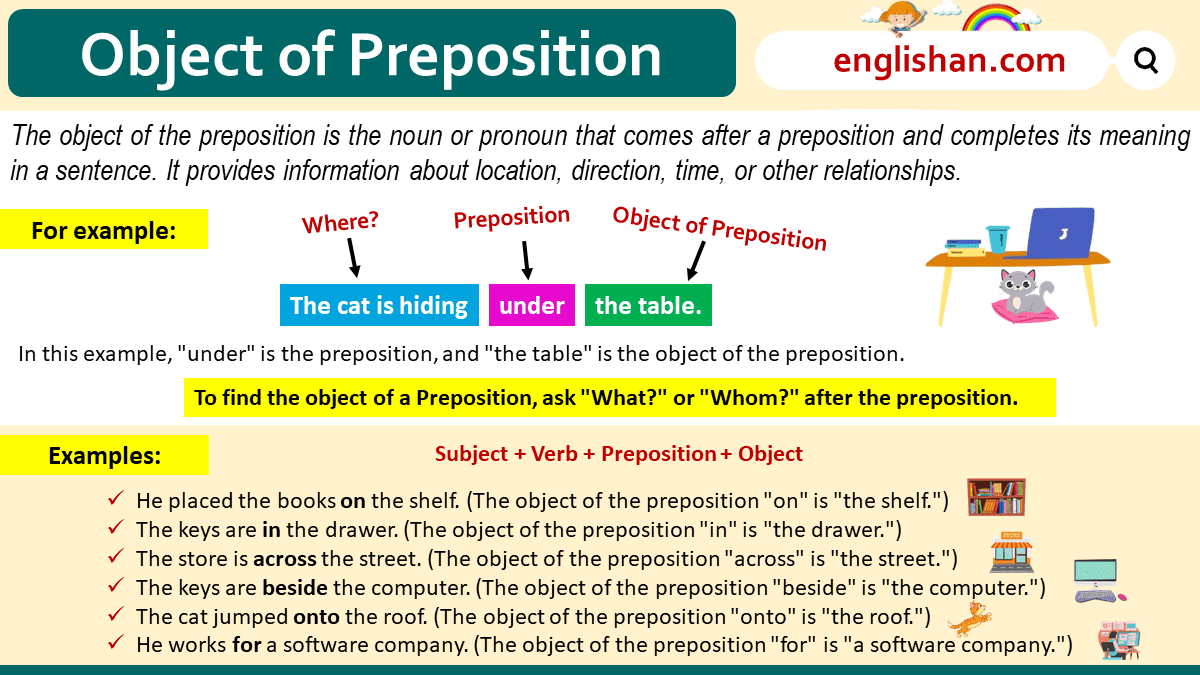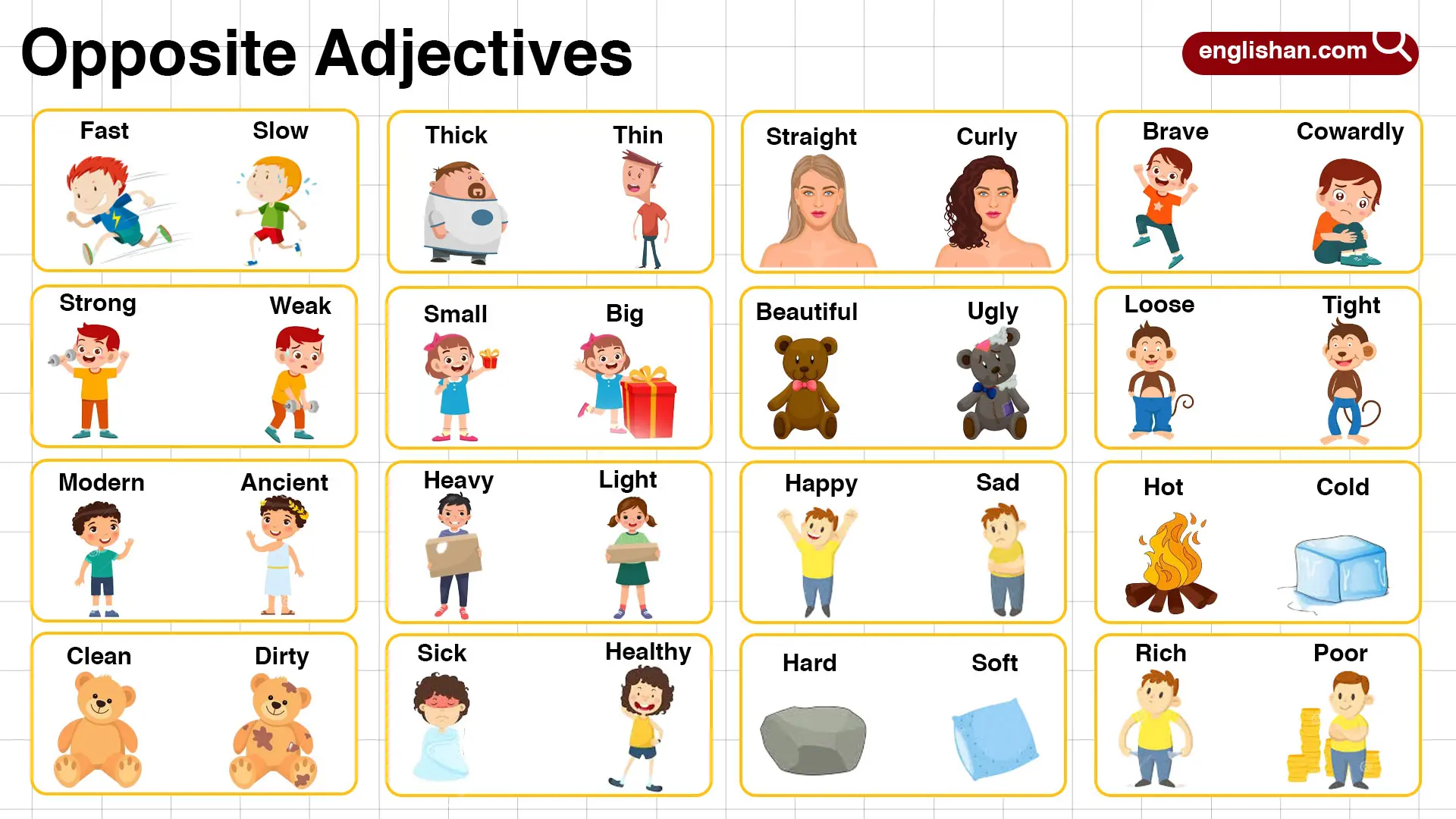Is there a gap between the complexity of your thoughts and the fluency of your writing on the page? It is a common academic hurdle: you understand the concept perfectly, but your written explanation lacks the smooth transitions that native speakers use instinctively. To bridge this gap, you must master linking words. These are the connectors that join clauses and whole sentences to establish relationships like cause, condition, and contrast.
In this article, I will break down the syntax and style rules you need to know. I am going to give you clear examples and a framework to build coherence, ensuring your writing finally reflects your true ability.
What are linking words?
Linking words, also known as transition words or connectors, are words or phrases that join ideas together. They make your sentences more coherent, which means they are easier to understand and follow. Think of linking words as the glue that holds your sentences together and helps your thoughts move from one point to the next seamlessly.
For example, in the sentences:
- I love tea. However, I don’t like coffee.
- I studied hard because I wanted to pass the exam.
Words like ‘however’ and ‘because’ are linking words. They connect ideas and show the relationship between them.
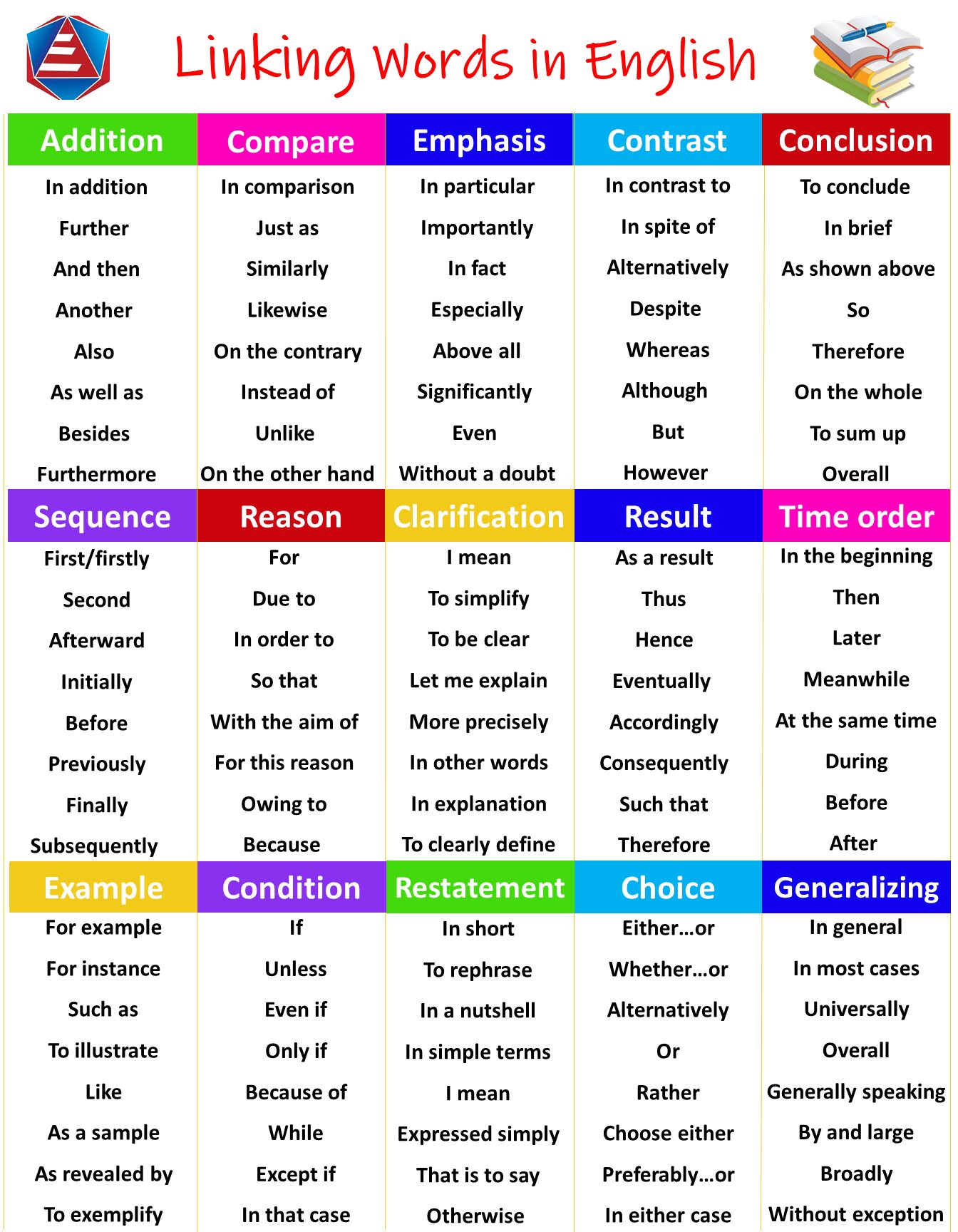
Functions of Linking Words
Imagine you’re telling a story or explaining something without using linking words. It would sound choppy and disconnected, like this:
- “I woke up. I went to the kitchen. I made breakfast. I ate it.”
With linking words, the same story becomes:
- “I woke up, then I went to the kitchen. After that, I made breakfast, and finally, I ate it.”
Adding linking words makes your story more interesting and easier to follow. It also helps your listeners or readers understand the relationships between your ideas.
How to Use Linking Words
Before using linking words, it’s crucial to understand their meanings and how they are applied. Here’s how to use them effectively
Choosing the Right Linking Word
Select the appropriate linking word based on the context:
- Use “Additionally” for adding more information.
- Use “For example” when providing an illustration.
Placement of Linking Words and Punctuating Them
Linking words can be placed at the beginning or in the middle of sentences for smooth transitions.
Starting a Sentence: Use a comma after a linking word.
- However, I decided to give it a try.
In the Middle of a Sentence: Add commas around the linking word.
- In this case, however, the outcome was unexpected.
Now let’s understand how to use linking words with coordination
Coordinating Conjunctions → Join two equal parts. Use a comma before: (FANBOYS) For, And, Nor, But, Or, Yet, So.
Example → I like apples, but he prefers oranges.
Subordinating Conjunctions → Introduce dependent clauses.
- Comma → When the dependent clause comes first.
Example → Although it was raining, we went for a walk. - No Comma → When the dependent clause comes after.
Example → We went for a walk although it was raining.
Lists of All Types of Linking Words
Linking words connect ideas and improve sentence flow. Below is a complete list of each type of linking word to enhance your writing!
Addition Words
Here is a comprehensive list of words that connect ideas and add information.
- Addition
- Additionally
- Along with
- Also
- Another
- And then
- Apart from this
- As well as
- As well as that
- Besides
- Coupled with
- Finally
- First
- Further
- Furthermore
- In addition
- Then
- In addition to this
- Moreover
- In the same fashion
- Not only…but also
- Not to mention
- Similarly
- Together with
- What’s more
- Plus

Contrast Words
Here is a comprehensive list of words that show differences between ideas.
- Alternatively
- By contrast
- In spite of
- Although
- As opposed to
- Contrarily
- Contrary to
- Conversely
- Despite
- Differing from
- Even so
- However
- In contrast to
- In opposition
- Instead
- Nevertheless
- Nonetheless
- Whereas
- While
- Yet
- Nor
- Notwithstanding
- On the other hand
- Rather
- Though
- Unlike
- Up against

Cause and Effect Words
Here is a comprehensive list of words that explain why something happens and its result.
- Because
- Since
- Therefore
- As a result
- Consequently
- Thus
- Hence
- Due to
- Owing to
- For this reason
- On account of
- Resulting from
- Under the circumstances
- In consequence of
- As a consequence
- The outcome is that
- The effect of this
- This has led to
- Such that
- Such is the case
- Accordingly
- Eventually

Comparison Words
Here is a comprehensive list of words that show similarities or differences.
- In comparison
- In the same way
- Correspondingly
- Just as
- Likewise
- Similarly
- Compared to/with
- As well as
- Equally
- Along with
- In a similar fashion
- By contrast
- Conversely
- On the contrary
- Same as
- Unlike
- Instead of
- While
- Nevertheless
- In spite of
- Yet
- Nonetheless
- At the same time
- In contrast to
- On the other hand

Words of Time Sequence in English
Here is a comprehensive list of words that show the order of events or steps.
- First
- First of all
- Initially
- At first
- In the beginning
- To start with
- Next
- Then
- Subsequently
- Later
- Following that
- Meanwhile
- Simultaneously
- Concurrently
- At the same time
- In the meantime
- While
- During
- Throughout
- After
- Before
- Prior to
- Afterwards
- Eventually
- Finally

Example Linking Words
Here is a comprehensive list of words that provide examples or clarify ideas.
- For example
- For instance
- Such as
- Like
- Including
- To illustrate
- In particular
- Specifically
- Namely
- As an illustration
- To demonstrate
- As shown by
- In the case of
- One example is
- As evidence
- In other words
- As a case in point
- To put it differently
- As revealed by
- A good example of this is
- In a similar manner
- This can be seen when
- As a specific instance
- To exemplify
- As a sample
- In one instance
- As proof
- Let’s consider
- As an example of
- To clarify

Conclusion/Summary Words in English
Here is a comprehensive list of words that wrap up ideas and provide a final statement.
- All things considered
- As demonstrated above
- In brief
- As shown above
- So
- As you can see
- By and large
- Given these points
- In a word
- Briefly
- In any event
- As noted
- In conclusion
- Generally speaking
- In short
- To end
- In the end
- In the final analysis
- On the whole
- Overall
- Therefore
- To conclude
- In summary
- To sum up
- In essence
- To summarize

Emphasis Linking Words
Here is a comprehensive list of words that highlight key points or stress information.
- Ultimately
- Clearly
- Clearly, then
- Importantly
- Most importantly
- Notably
- Significantly
- Indeed
- In fact
- Undoubtedly
- Without a doubt
- Absolutely
- Positively
- Unquestionably
- In particular
- Especially
- Primarily
- Chiefly
- Above all
- It’s worth noting
- It should be emphasized that
- It’s important to highlight
- A key point to remember
- Of course
- Naturally
- To stress
- Also
- To highlight
- It’s important to note
- Even
- To draw attention to
- It cannot be overstated
- To repeat
- Truly

Clarification Linking Words
Here is a comprehensive list of words that make ideas clearer or explain them differently.
- I mean
- In explanation
- To be clear
- In other words
- Let me explain
- To put it clearly
- Simply stated
- That is to say
- To break it down
- More precisely
- To clearly define
- Allow me to clarify
- To put it in another way
- Simply put
- To simplify

Linking Words for Expressing Purpose/Reason
Here is a comprehensive list of words that explain why something is done.
- Because of
- Therefore
- For the purpose of
- Given that
- Granted that
- In view of
- Owing to
- With this purpose
- Provided that
- Seeing that
- With this in mind
- In fact
- In order to
- As a result
- With this intention
- So that
- With the aim of

Sequence Linking Words
Here is a comprehensive list of words that show the logical order of events.
- First/Firstly
- Second/Secondly
- Third/Thirdly
- Afterward
- Finally
- Initially
- Following
- Previously
- Before
- Subsequently
- To start with

Condition Linking Words
Here is a comprehensive list of words that show conditions for something to happen.
- If
- Unless
- Although this may be true
- As
- Because of
- Even if
- In that case
- On the condition that
- Only if
- Since
- Then
- When
- Whenever
- While
- Except if

Linking Words of Choice in English
Here is a comprehensive list of words that present options or alternatives.
- Option 1 or Option 2
- Either… or…
- Whether… or…
- Preferably… or…
- In either case…
- Or
- Alternatively
- While… In comparison…
- Rather
- Select between… or…
- Choose either… or…

Linking Words for Restatement in English
Here is a comprehensive list of words that repeat or rephrase an idea for clarity.
- I mean
- Expressed simply
- In a nutshell
- Otherwise stated
- Put in another way
- In other words
- That is to say
- To put it differently
- In simple terms
- What I mean by this is
- To rephrase
- In short

Linking Words for Generalizing Information
Here is a comprehensive list of words that make broad statements for generalization.
- In general
- Generally speaking
- On the whole
- Overall
- Broadly
- By and large
- In most cases
- In the majority of instances
- As a rule
- For the most part
- In a general sense
- Without exception
- Universally
- Across the board
- Without distinction
- In a broader context
- Typically
- Commonly
- Without specific regard to
- In a global perspective
- Without pinpointing

Practical Examples of Linking Words
Let’s put linking words into action with more examples. Notice how they help the flow of each sentence:
- I woke up early, then I made breakfast. After that, I went for a walk.
- She was tired because she had worked all day. However, she still managed to cook dinner.
- I went to the store and bought some vegetables. In addition, I picked up some fruit.
- We planned to visit the beach, but it started raining, so we stayed home instead.
- He loves reading books, especially novels. For example, he recently finished ‘Pride and Prejudice’.
- I wanted to call my friend, but I couldn’t find my phone.
- After finishing my homework, I watched a movie.
- The car was old; however, it was still very reliable.
- “In addition, we need to buy some vegetables for dinner.”
Conclusion
‘Linking words’ are considered a powerful tool in English. They make your sentences clearer, help your ideas connect, and make your speaking and writing much more engaging. By using linking words, you can take your English from simple and choppy to smooth and natural.
Linking Words Quiz
Linking Words Quiz
Pick the best connector for each sentence. You’ll see correctness after you choose. Open the hint only if you want help.
Your Results
FAQs
Linking words, also known as transition words or connectors, are words or phrases that create a connection between ideas, sentences, or paragraphs in a text.
Connecting words help to create cohesion and coherence in writing, making it easier for readers to understand the relationships between different ideas.
Linking words help writers to make their writing coherent and logical. They allow the writer to smoothly transition from one idea to the next, which helps keep the reader engaged and ensures that the writing flows logically.
While it’s generally better to use a variety of linking words to create a sense of flow and variety, there may be instances where using the same linking word multiple times in a paragraph is appropriate.
Here’s a list of commonly used linking words:
1. Addition:
and
also
in addition
furthermore
moreover
besides
2. Contrast:
but
however
on the other hand
although
nevertheless
yet
3. Cause and Effect:
because
since
as a result
therefore
consequently
thus
4. Comparison:
similarly
likewise
in the same way
just as
equally
5. Sequence or Order:
first, second, third, etc.
next
then
after
finally
subsequently
6. Emphasis:
especially
indeed
in fact
certainly
above all
7. Conclusion or Summary:
in conclusion
to sum up
overall
in summary
finally
Conjunctions are a type of linking word that connects two clauses within a sentence. Linking words, on the other hand, connect different sentences or paragraphs within a text.
You May Also Like
